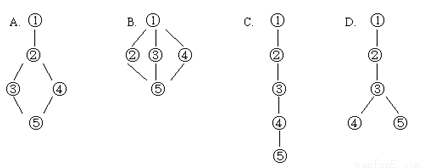题目内容
Let's do some sleep math. You lost two hours of sleep every night last week because of a big project due on Friday. On Saturday and Sunday, you slept in, getting four extra hours. On Monday morning, you were feeling so bright-eyed, and you only had one cup of coffee, instead of your usual two. But don't be cheated by your energy: You’re still carrying around a heavy load of sleepiness, or what experts call “sleep debt”.
Sleep debt is the difference between the amount of sleep you should get and the amount you actually get. It’s a deficit that grows every time we remove some minutes off our nightly sleep. “People get more and more sleep debt without noticing it,” says William Dement, founder of the Stanford University Sleep Research Centre. Studies show that such short-term lack of sleep leads to a foggy brain, worsened eyesight, and trouble remembering. Long-term effects include obesity, and heart disease. A survey reports that we’re losing one hour of sleep each night—more than two full weeks of sleep each year.
The good news is that, like all debts, sleep debt can be paid off with some work. Adding an extra hour or two of sleep a night is the way to catch up. For the long-term lack of sleep, take it easy for a few months to get back into a natural sleep pattern(模式). Go to bed when you are tired, and allow your body to wake you in the morning naturally (no alarm clock allowed).
As you pay off sleep debt, your body will come to a rest at a sleep pattern that is particularly right for you. Sleep researchers believe that although the exact genes (基因) remain to be discovered, genes do determine our individual sleep patterns. That probably means you can’t train yourself to be a “short sleeper” and you’re fooling yourself if you think you’ve done it, so earn back that lost sleep and follow the orders of your inner sleep needs. When you put away sleep debt, you become a superman.
1.The example of sleep math is used to show___________.
A. how you build up your sleep debt
B. how you can pay off sleep debts at weekends
C. why you need enough sleep every night
D. why you should drink coffee to stay energetic
2. What does the underlined word “deficit” in paragraph 2 refer to?
A. full sleep B. light sleep
C. deep sleep D. lack of sleep
3.Those in sleep debt for a long time are likely to suffer from____________.
A. failing eyesight B. poor memory
C. weak heart D. weight loss
4.It’s impossible to train oneself to be a “short sleeper” because _________.
A. one can only get their energy during long sleep
B. how one sleeps is determined when they were born
C. one will feel tired if their sleep is less than needed
D. one sleeps more when developing a natural sleep pattern


